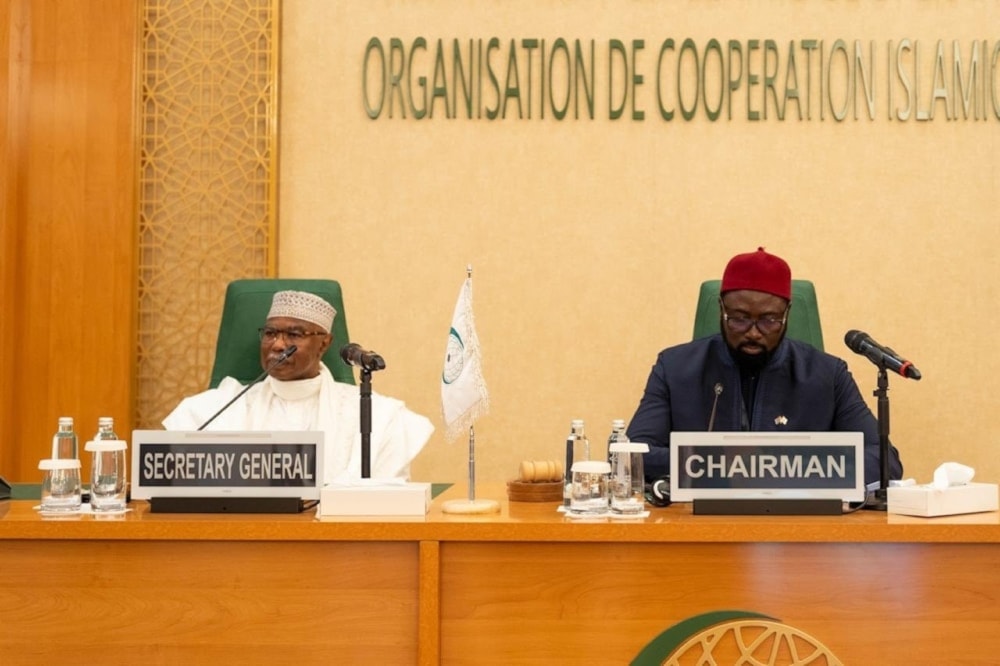Haniyeh assassination threatens to push ME into wider conflict: OIC
The rotating presidency of the Organization of Islamic Cooperation confirmed that the assassination of the martyred leader Ismail Haniyeh only serves to escalate existing tensions that may lead to escalaions in the region.
-

Secretary General of the Organization of Islamic Cooperation, Hussein Ibrahim Taha, during the opening session of the meeting discussing the crimes of the occupation in Gaza, August 7, 2024 (Social media)
The rotating presidency of the Organization of Islamic Cooperation confirmed on Wednesday that the "heinous killing" of the former head of the political bureau of the Islamic Resistance Movement Hamas, the martyred leader Ismail Haniyeh, "threatens to escalate the Middle East into a broader conflict."
"The heinous assassination only serves to escalate existing tensions that could lead to a wider conflict," said OIC Secretary General Hussein Ibrahim Taha during the opening session of the extraordinary meeting of the Executive Committee at the level of foreign ministers from member states.
The session was convened to discuss the ongoing crimes of the Israeli occupation against the Palestinian people and its aggression against Iran.
He also emphasized that "the sovereignty of nation-states and the integrity of their territories are among the fundamental principles on which the international system is based."
Saudi Arabia said the assassination of Hamas leader Ismail Haniyeh in Tehran was a "blatant violation" of Iran's sovereignty.
The deputy foreign minister of Saudi Arabia made the statement after the July 31 assassination of a Palestinian Resistance leader in the Iranian capital, during an extraordinary meeting of the Organization of Islamic Cooperation (OIC).
Deputy Foreign Minister Waleed Al-Khuraiji added that Saudi Arabia rejects "any violation of the sovereignty of states or interference in the internal affairs of any country."
Haniyeh was martyred in an Israeli bombing that targeted the Iranian capital, Tehran, a few days ago, on July 31, 2024.
The assassination occurred during Haniyeh's visit to Tehran to participate in the inauguration ceremony of Iranian President Massoud Pezeshkian. This followed a meeting with the Leader of the Revolution and the Islamic Republic, Sayyed Ali Khamenei.
The attack came shortly after another assassination in the southern suburbs of Beirut, which killed the prominent jihadist leader, Fouad Shokor (Sayyed Mohsen), resulting in the martyrdom and injury of civilians.

 2 Min Read
2 Min Read








